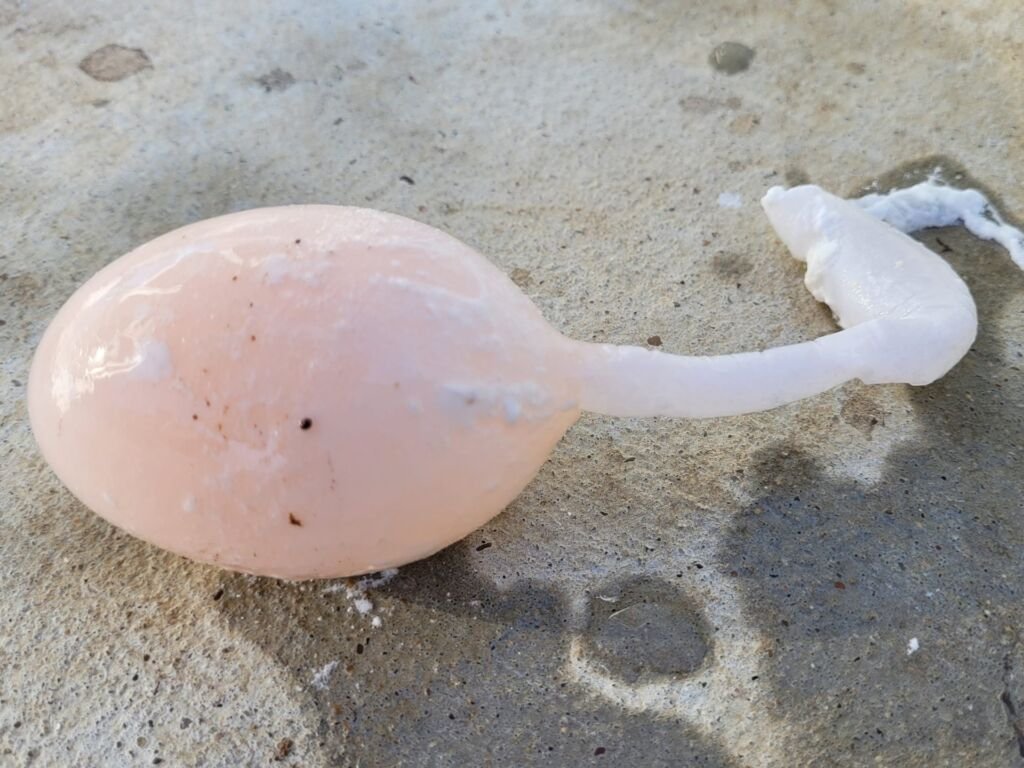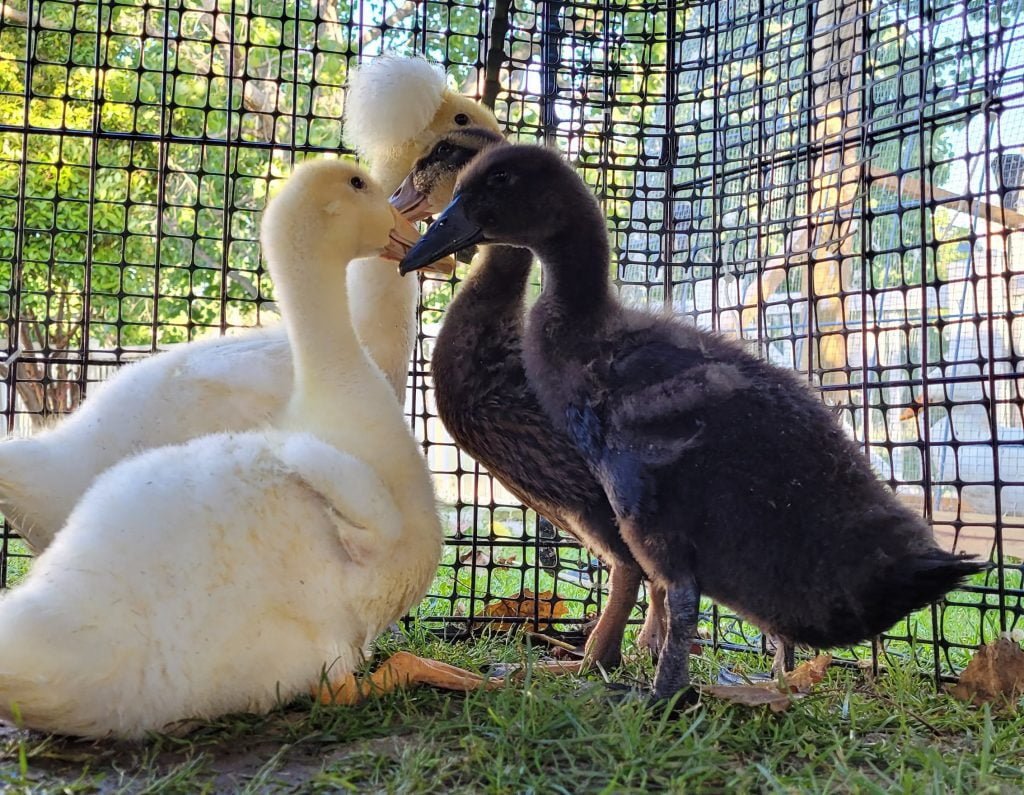Last updated on July 16th, 2024 at 06:26 pm
Thinking about adding ducks to your family? Ducks can make wonderful pets with their charming personalities and quirky behaviors. This guide is made for new duck parents and for those who are thinking about getting ducks. We will walk you through the basics of keeping ducks.
Disclaimer: I may earn a commission if you buy products or services through my affiliate links. This will not affect the price you pay. I only recommend products or services that I believe will be beneficial to my readers.
Why Keeping Ducks?
Ducks are not only adorable but also practical pets for many reasons:
Affectionate Companions
- Ducks can form strong bonds with their human caregivers.
- They enjoy being around people and can be quite affectionate.
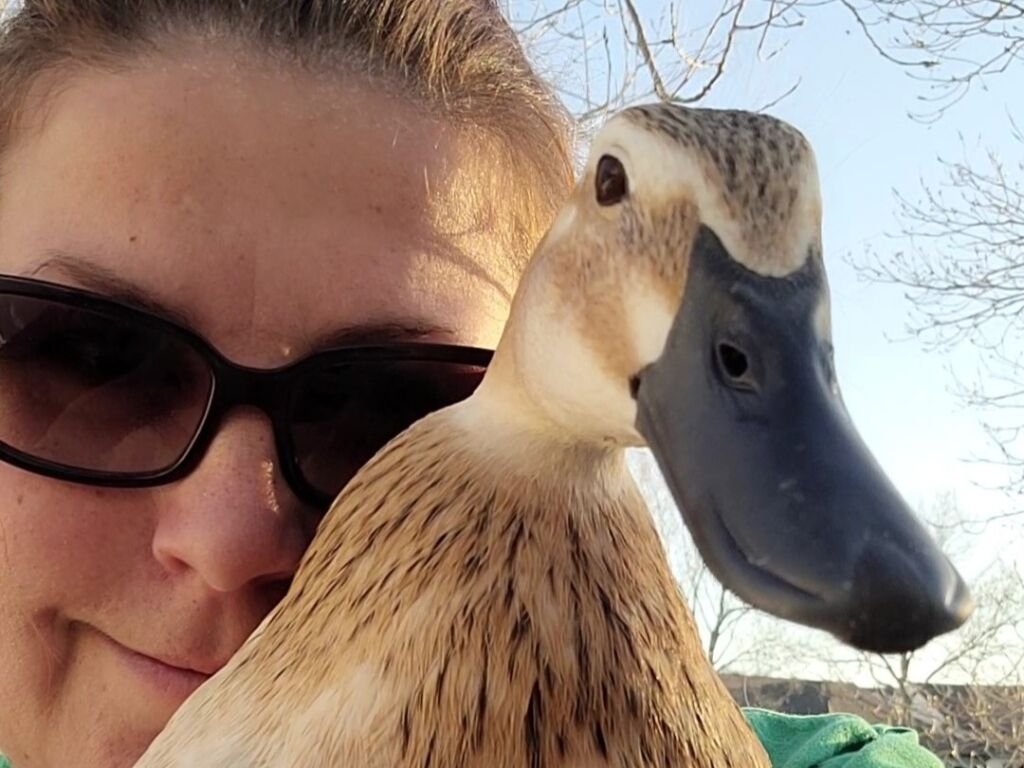
Affectionate ducks are just adorable! They love showing how much they care about you in all sorts of sweet ways. They might give soft quacks, snuggle up close, or even happily follow you around. These ducks really enjoy being with their human friends and appreciate any love and attention you give them. Whether it’s sharing treats, giving gentle pets, or just hanging out together, affectionate ducks bring so much happiness and warmth to your home.
Pest Control
- Ducks are natural foragers and can help control pests like slugs, snails, and insects in your yard or garden.
- Their foraging behavior can reduce the need for chemical pesticides.
Ducks can be amazing helpers when it comes to pest control around your yard or garden. With their natural instincts and foraging behavior, these feathered friends can keep pesky insects and even small rodents in check without the need for harmful chemicals.
Environmental Benefits
- Ducks produce nutrient-rich manure that can fertilize gardens and improve soil health.
Ducks are also great at nibbling on weeds, helping to keep your garden beds tidy and free from unwanted plant invaders.
As ducks forage, they also contribute to fertilizing the soil with their droppings, enriching it with nutrients for healthier plants.
Egg Production
- Many duck breeds lay delicious, nutrient-rich eggs.
- Duck eggs are larger than chicken eggs and have a rich flavor, perfect for baking and cooking.

Duck eggs are not only delicious but also packed with nutrients, making them a fantastic addition to any kitchen. These eggs typically have a richer flavor and larger yolk compared to chicken eggs, adding a unique taste to your culinary creations. With their thicker shell, duck eggs also have a longer shelf life than chicken eggs, lasting up to six weeks when properly stored. Additionally, duck eggs are an excellent source of protein, vitamins, and minerals such as vitamin B12, riboflavin, and selenium. Whether scrambled, poached, or used in baking, duck eggs are a versatile and nutritious option for any meal.
Before Getting Ducks
Before bringing ducks home, there are a few essential things to consider:
Local Regulations
- Check local ordinances and regulations regarding the ownership of ducks.
- Ensure you have enough space for ducks and that they are allowed in your area.
- It is against the law to release domestic ducks at local ponds (aka duck dumping). So only get them if you are willing to keep them.
Local regulations regarding duck keeping can vary depending on where you live, so it’s essential to familiarize yourself with the rules and guidelines in your area before bringing home these delightful feathered companions. Some common regulations may include restrictions on the number of ducks you can keep, zoning requirements regarding coop placement and size, and regulations concerning noise levels and waste management.
Additionally, certain areas may have specific permits or licenses required for keeping ducks, especially in urban or residential settings. By understanding and adhering to local regulations, you can ensure a harmonious relationship with your neighbors and provide a safe and legal environment for your ducks to thrive.
Time Commitment
- Ducks require daily care, including feeding, watering, and cleaning.
- Be prepared for the time commitment involved in caring for ducks, as they are not low-maintenance pets.
- Duck can easily get 10 years and older. Be prepared to care for them for a long time.
Keeping ducks requires a significant time commitment to ensure their health and well-being. Daily tasks include providing fresh water, feeding, and checking for any signs of illness or injury. Ducks also need regular cleaning of their living quarters to maintain hygiene, which may take around 20 to 30 minutes daily.

Additionally, ducks benefit from outdoor exercise and supervision to ensure their safety from predators. Veterinary care, including routine check-ups and treatment for any health issues, is also part of the time commitment involved in duck keeping. Overall, the time required for duck care varies depending on factors such as the number of ducks and your setup, but consistent attention and care are essential for their happiness and health.
Shelter and Space
- Ducks need a safe and secure shelter to protect them from predators and the elements.
- Be aware of the predators in the area you live. This will influence the shelter you need to chose.
- Provide ample space for ducks to roam and forage, both indoors and outdoors.
Providing suitable shelter and space for ducks is crucial for their comfort and well-being. Ducks need a secure and dry coop or shelter to protect them from predators and the elements, with enough space for them to move around comfortably. The coop should have proper ventilation to prevent moisture buildup and adequate bedding for nesting.
Additionally, ducks require access to outdoor space for exercise and foraging, whether it’s a fenced yard, a pond, or a designated free-range area. The amount of space needed depends on the number of ducks you have and their breed, but as a general rule, allow at least 4 square feet of indoor space per duck and provide plenty of room for outdoor exploration and activities. Regular cleaning and maintenance of the shelter and outdoor area are also essential to ensure a healthy environment for your ducks.
Duck Housing
Duck Coop
- A duck coop should be spacious, well-ventilated, and predator-proof.
- Provide nesting boxes for egg-laying ducks (optional).
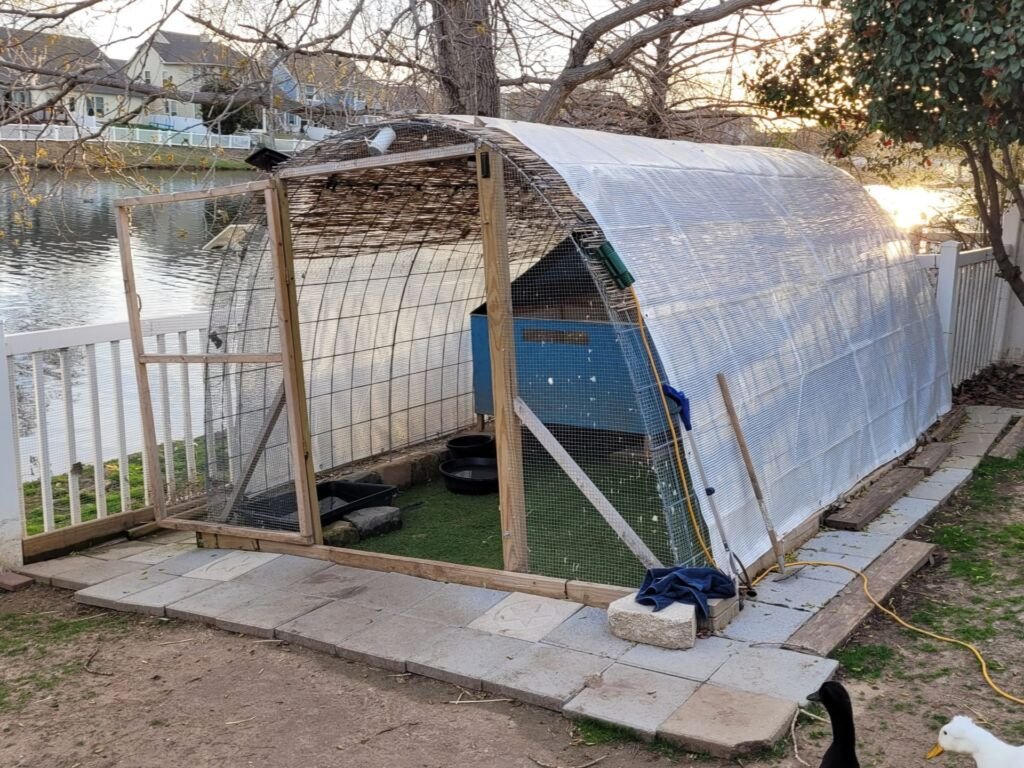
A duck coop serves as the primary shelter and living quarters for your feathered friends, providing them with a safe and comfortable space to rest, nest, and seek refuge from the elements.
Outdoor Enclosure
- Ducks need access to a fenced outdoor area for foraging and exercise.
- Ensure the enclosure is secure to prevent escapes and protect ducks from predators.
An outdoor enclosure provides ducks with essential space for exercise, foraging, and natural behavior. Whether it’s a fenced yard, a designated free-range area, or access to a pond, outdoor space allows ducks to stretch their wings, socialize with each other, and explore their surroundings. Ensure the enclosure is securely fenced to prevent escapes and protect ducks from predators.
Providing access to fresh grass, plants, and insects encourages natural foraging behaviors and adds enrichment to their environment. Regular supervision while ducks are outdoors helps ensure their safety and allows you to monitor their behavior and well-being. With proper outdoor access, ducks can enjoy a fulfilling and active lifestyle while contributing to a healthy and balanced ecosystem.
Feeding Ducks
Duck Feed
- Ducks require a balanced diet of commercial duck feed or poultry pellets.
- Supplement their diet with fresh greens, vegetables, and occasional treats like mealworms or cracked corn.
Ducks thrive on a balanced diet that consists primarily of commercial duck feed pellets or crumbles, specially formulated to meet their nutritional needs. These feeds typically contain the right balance of protein, carbohydrates, fats, vitamins, and minerals to support duck growth, egg production (if applicable), and overall health.
In addition to commercial feed, supplementing their diet with fresh fruits and vegetables provides essential vitamins, antioxidants, and fiber, while offering variety and enrichment.
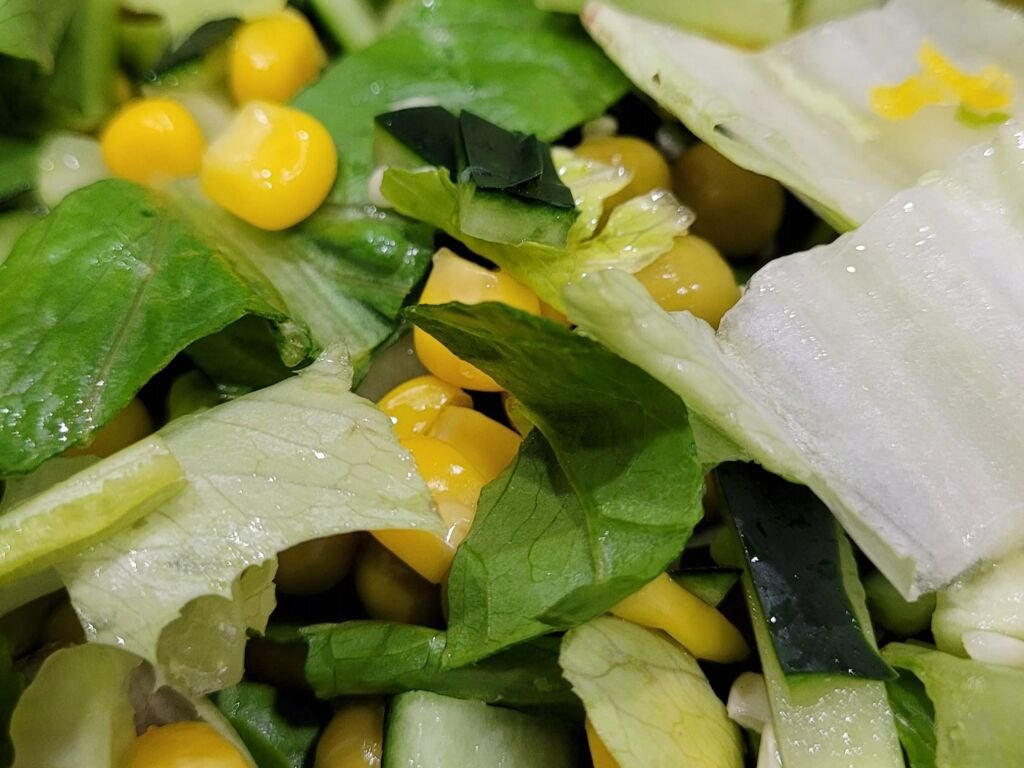
Ducks also enjoy occasional treats like grains (such as oats, barley, and wheat) and protein sources (like mealworms, earthworms, or cooked eggs), which can be scattered in their coop or outdoor area to encourage natural foraging behavior.
It’s crucial to ensure ducks have access to clean, fresh water at all times for drinking and bathing, as hydration is essential for their health and well-being.
While feeding ducks, it’s important to avoid offering bread, as it lacks nutritional value and can lead to health issues such as malnutrition and angel wing deformity. Additionally, limiting treats high in salt, sugar, or fat helps maintain a balanced diet and prevents potential health problems.
By providing a varied and nutritious diet tailored to their needs, you can ensure your ducks lead healthy, happy lives.
Fresh Water
- Ducks need access to clean, fresh water at all times for drinking and bathing.
- Use water containers, buckets or a kiddie pool for bathing.
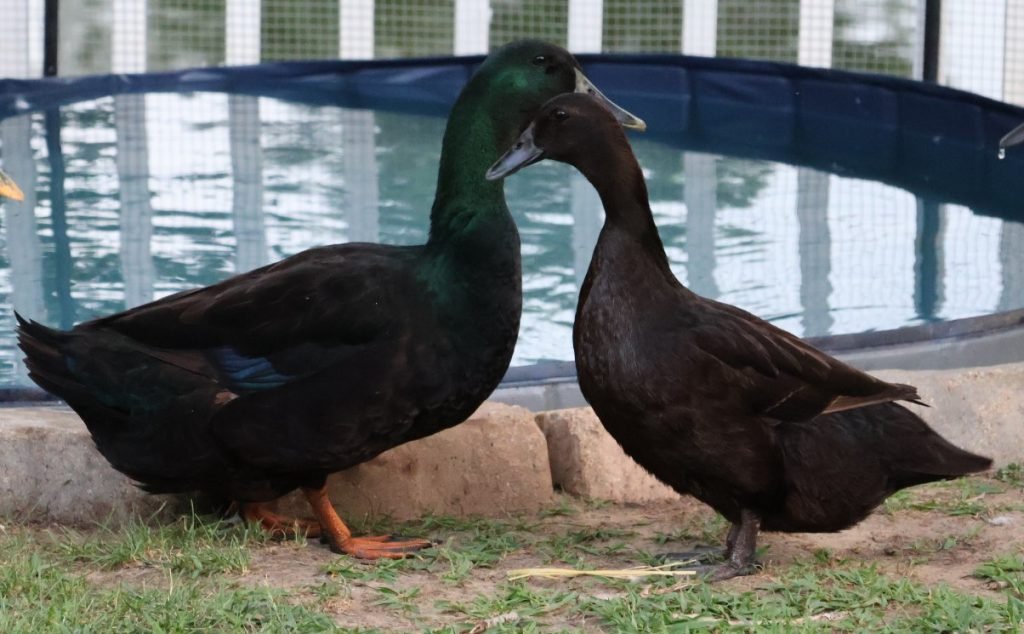
Water is indispensable for ducks, serving a multitude of purposes in their daily lives. Beyond hydration, ducks utilize water for bathing, grooming, and foraging. Bathing helps ducks maintain clean and waterproof feathers, which are essential for insulation and protection.
Additionally, water serves as a prime foraging ground, where ducks search for aquatic plants, insects, and small fish. Socializing and cooling off are also facilitated by water, providing ducks with opportunities for interaction and temperature regulation, especially in hot weather.
Furthermore, water plays a pivotal role in nesting and raising young ducklings, offering a safe and nurturing environment for their development. Overall, water is not just a necessity but a cornerstone of duck behavior and well-being.
Health and Maintenance
Veterinary Care
- Find a veterinarian experienced in treating ducks for routine check-ups and medical care.
- Watch for signs of illness or injury and seek veterinary attention if necessary.
Veterinary care is essential for maintaining the health and well-being of ducks. While ducks are generally hardy animals, regular check-ups with a qualified avian veterinarian can help prevent and detect any potential health issues early on. A veterinarian can provide guidance on proper nutrition, housing, and disease prevention strategies tailored to your ducks’ specific needs.
Additionally, vaccinations may be recommended to protect against common diseases such as duck viral enteritis and avian influenza. In case of illness or injury, prompt veterinary attention is crucial to ensure timely diagnosis and treatment.
Duck owners should also be familiar with basic first aid procedures and have a plan in place for emergencies. By prioritizing veterinary care, duck owners can help their feathered companions live long, healthy lives.
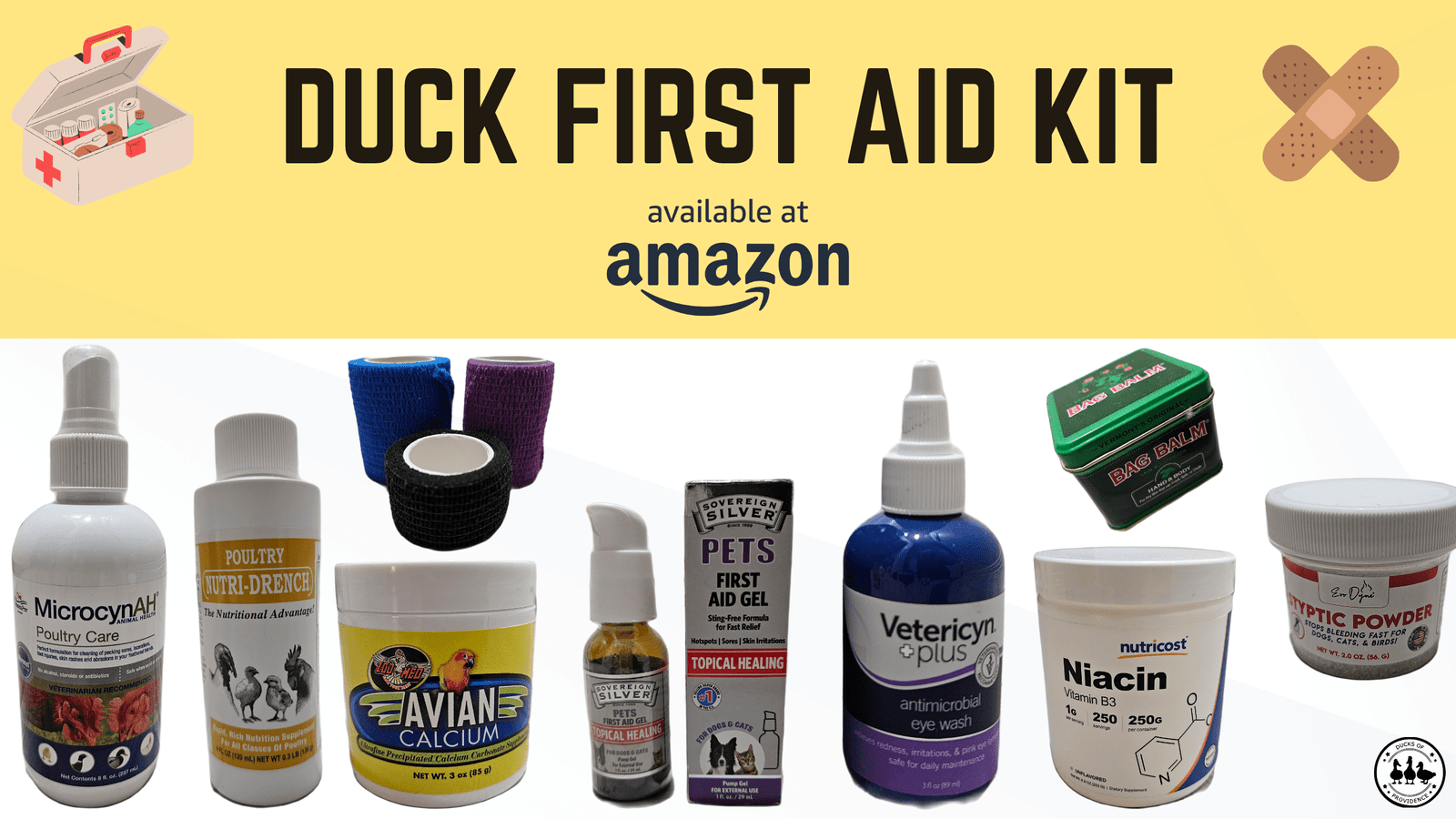
Health Conditions
- Keep an eye out for injuries or illness. Ducks tend to hide illnesses, but when you know your ducks you will notice differences in behavior.
- Maintain a clean living environment to minimize the risk of infections.
Ducks can be susceptible to various health conditions, ranging from nutritional deficiencies to infectious diseases. Common health issues in ducks include respiratory infections, parasites (such as worms and mites), bumblefoot (a bacterial infection of the foot), and egg-related problems (such as egg binding or prolapse).
Additionally, ducks may suffer from injuries, such as predator attacks or accidental trauma, which require immediate veterinary attention. To prevent health problems, it’s crucial to provide ducks with a balanced diet, clean water, adequate shelter, and regular veterinary check-ups. Early detection and treatment of health conditions are key to ensuring the well-being and longevity of your duck flock.
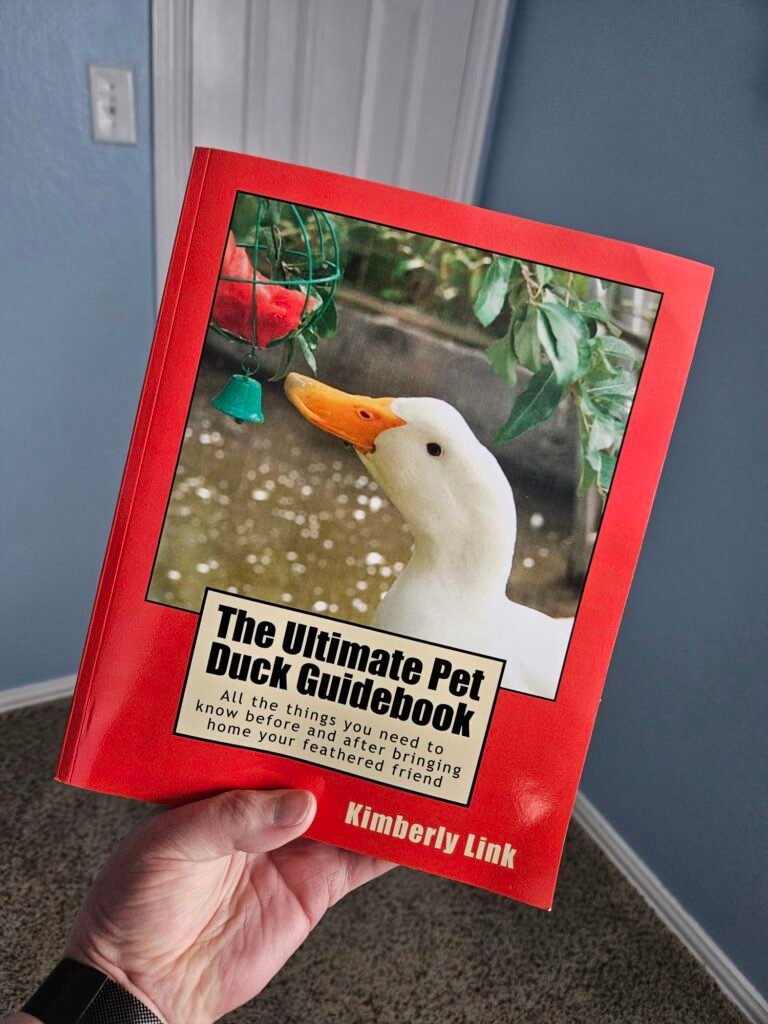
This is the BEST book about ducks I have ever had. I can highly recommend it to every duck owner, new or experienced. It is very comprehensive with pictures and illustrations. It covers all topics related to duck care and keeping ducks. It even has multiple case studies.
Conclusion
Keeping ducks can be a rewarding experience for both novice and experienced pet owners. By understanding their needs and providing proper care, you can enjoy the company of these charming and entertaining birds for years to come. Remember to do your research, plan ahead, and always prioritize the well-being of your feathered friends.
However, it’s important to recognize that ducks may not be suitable pets for everyone. We encourage you to watch the video or read the linked post below to better understand what it entails to have ducks as pets.
Related Posts:
- Pet Ducks: How Many should I have? And where do I get them from?
- How to keep ducks safe from predators?
- What Do Ducks Eat? Your Guide To Feeding Ducks
- 12 Things to Know BEFORE Getting Ducks as Pets
- Quackonomics 101: Exploring Pet Duck Cost
- How To Get A Duck to Trust You?
- 29 Must-have Items for Your Pet Duck First Aid Kit


